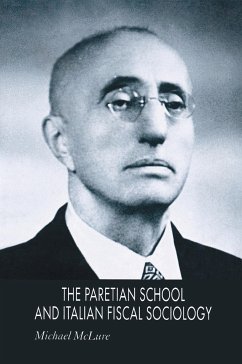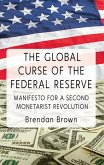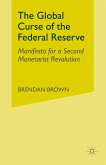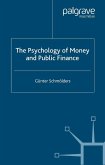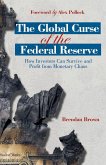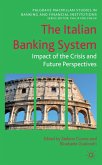In the 1930s, a Pareto vogue emerged in the English-speaking world. In Italy, however, the Paretian episode was already well established, with many Italian economists investigating the relationship between economics and sociology based on Pareto's contributions. This is a study of the Paretian school and its 'fiscal sociology'.
'Pareto optimality is a household word in economics. Pareto's law on income distribution is a staple item in economics and often ignored by those in charge of economic policy. The Italian school Pareto had as a following in public finance and fiscal sociology has not been well documented before. The author does not only describe Pareto's influence on fiscal economic thought in the Italy of his time. Next to the 10 chapters devoted to this task, he provides 6 more chapters which are, essentially, translations from the Italian documenting the kind of fiscal theorising that Pareto instigated. Particularly fascinating in the light of modern developments are his thoughts on experimental economics.' - Prof.Dr.Dr.H.C.Juergen Backhaus Lic.jur., Krupp Foundation Chair in Public Finance and Fiscal Sociology, Faculty of Economics, Law, and the Social Sciences, University of Erfurt, Germany
"Japanese readers must have known of the development of Paretian sociological public finance by Sumio Hyugaji's The Development and the Structure of Public Finance in Italy (in Japanese, 1987). The merit of this volume in comparison to Hyugaji's book is to put forward the criteria established for defining a school of thought .The author's clear account of the SRP [social research program] is valuable because that account provides a criterion by which to distinguish between what merits historical research and what does not.' - The History of Economic Thought
'In the concluding chapter 10, of part 1, the author's definitive statement appears: 'In terms of the criteria established for this study, it is legitimate to refer to the Paretian episode in Italian intellectual history as a 'school of thought'' (p. 172). Given the author's carefully worded statement, his conclusion cannot be challenged within that specific context and on logical grounds. In this sense, the book is an exhaustive study of the Paretian school as represented by Italian fiscal sociology, diligently researched and carefully crafted." - History of Political Economy
'The Italian school and Pareto had a following in public finance and fiscal sociology that has not been well documented before. The author not only describes Pareto's influence on fiscal economic thought in the Italy of his time. Next to the 10 chapters devoted to this task, he provides six more chapters which are, essentially, translations from the Italian documenting the kind of fiscal theorising that Pareto instigated.' - Public Choice
'All in all, the book ably highlights the author's profound interest in Pareto's intellectual legacy in Italy and fills a substantial gap in the literature, presenting in a clear way contributions of considerable historical significance as yet unknown outside Italy. Overall, this is a book that is well worth reading, and extremely useful to all those with an interest in Italian economic thought.' - History of Economics Review
"Japanese readers must have known of the development of Paretian sociological public finance by Sumio Hyugaji's The Development and the Structure of Public Finance in Italy (in Japanese, 1987). The merit of this volume in comparison to Hyugaji's book is to put forward the criteria established for defining a school of thought .The author's clear account of the SRP [social research program] is valuable because that account provides a criterion by which to distinguish between what merits historical research and what does not.' - The History of Economic Thought
'In the concluding chapter 10, of part 1, the author's definitive statement appears: 'In terms of the criteria established for this study, it is legitimate to refer to the Paretian episode in Italian intellectual history as a 'school of thought'' (p. 172). Given the author's carefully worded statement, his conclusion cannot be challenged within that specific context and on logical grounds. In this sense, the book is an exhaustive study of the Paretian school as represented by Italian fiscal sociology, diligently researched and carefully crafted." - History of Political Economy
'The Italian school and Pareto had a following in public finance and fiscal sociology that has not been well documented before. The author not only describes Pareto's influence on fiscal economic thought in the Italy of his time. Next to the 10 chapters devoted to this task, he provides six more chapters which are, essentially, translations from the Italian documenting the kind of fiscal theorising that Pareto instigated.' - Public Choice
'All in all, the book ably highlights the author's profound interest in Pareto's intellectual legacy in Italy and fills a substantial gap in the literature, presenting in a clear way contributions of considerable historical significance as yet unknown outside Italy. Overall, this is a book that is well worth reading, and extremely useful to all those with an interest in Italian economic thought.' - History of Economics Review

